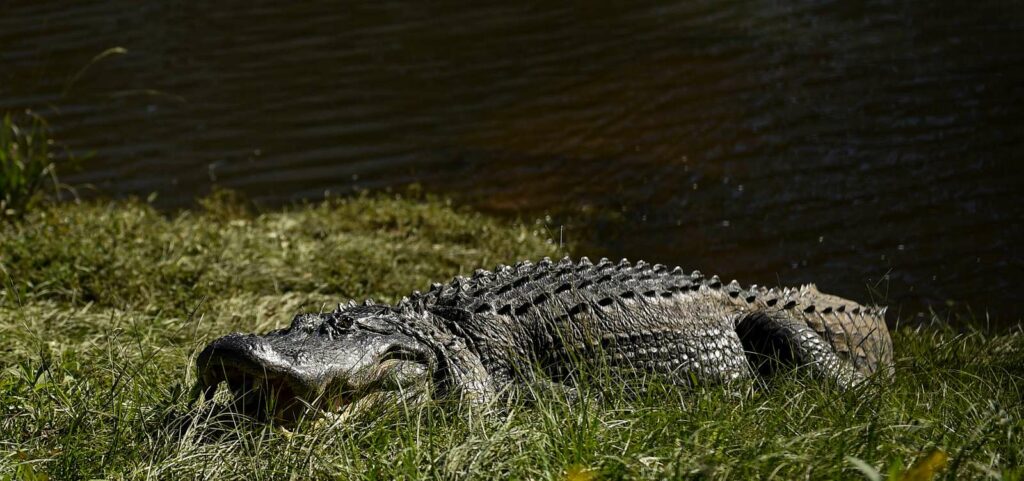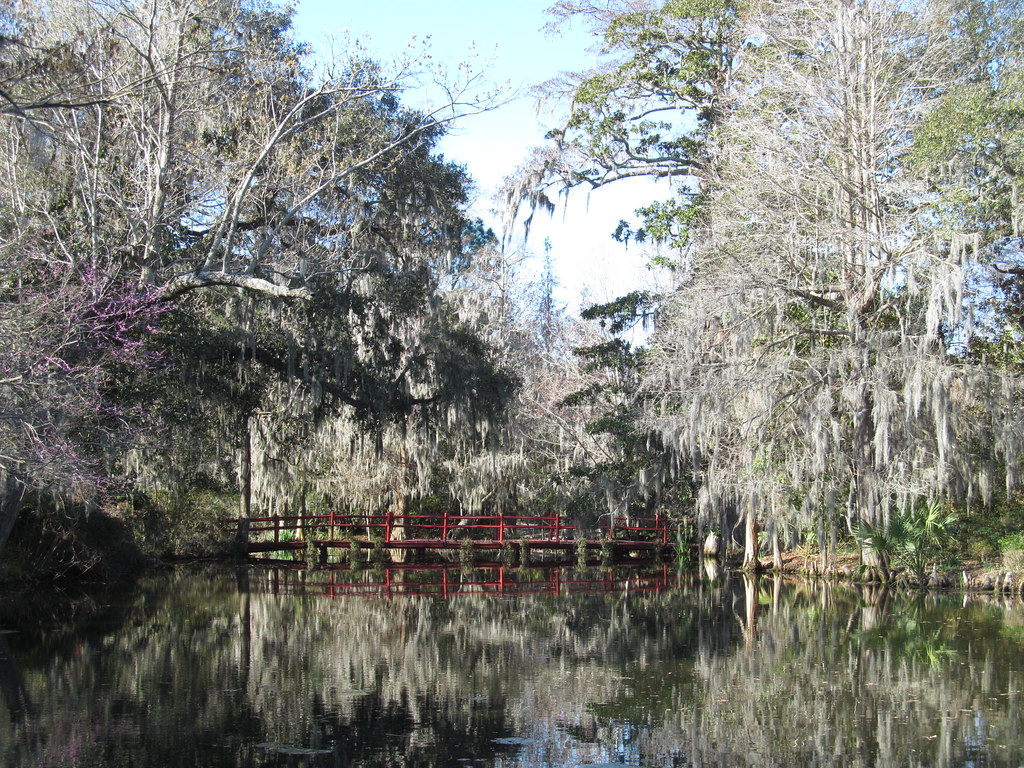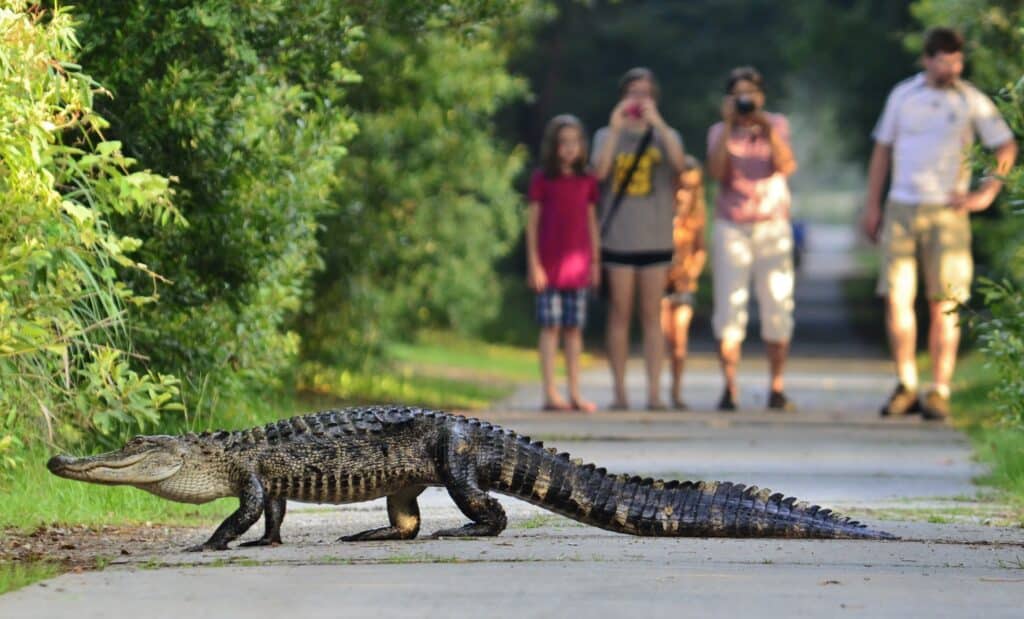Everything You Need to Know About Alligators in Charleston, SC

Exploring the marshes and swamps around Charleston, South Carolina, can be a thrilling experience for nature enthusiasts and other visitors. The city and its surrounding areas are home to a diverse range of wildlife, including fish (lots of sharks), birds, and yes, alligators.
Indeed, the American alligator (Alligator mississippiensis) can be found throughout the Charleston area, thriving in various habitats like marshes, swamps, and rivers. As a keystone species, alligators play a crucial role in maintaining the delicate balance of the local ecosystem.
The Lowcountry of South Carolina offers a warm, humid climate that alligators love, with abundant freshwater habitats teeming with food. Charleston, in particular, has numerous waterways and wetlands that provide ideal environments for these fascinating reptiles.
Where to Find Alligators in Charleston, SC

Though alligators are common in the Charleston area, they generally avoid human-populated areas and rarely pose a threat to people. However, when you do spot one, it’s essential to exercise caution, maintain a safe distance. Whatever you do, never feed or otherwise interact with the alligators.
With the necessary disclaimer out of the way, some of the most popular spots to observe alligators in and around Charleston include:
James Island County Park
Just a short drive from downtown Charleston, this park offers various waterways and ponds that provide excellent opportunities to spot alligators. Visitors can explore the park’s walking and biking trails, keeping an eye out for alligators sunning themselves near the water’s edge.
Magnolia Plantation and Gardens
The extensive gardens of this historic plantation contain several bodies of water where alligators can be seen. The plantation offers guided nature tram tours that provide an opportunity to learn about the wildlife and spot alligators basking in the sun.
Caw Caw Interpretive Center
Managed by the Charleston County Park and Recreation Commission, this nature preserve includes wetland and swamp habitats where alligators can be spotted. The center features over six miles of trails, allowing visitors to explore diverse ecosystems and observe alligators from observation platforms.
North Charleston Wannamaker County Park
This park, located in North Charleston, features a 15-acre lake and several smaller ponds that serve as home to alligators. As you stroll through the park or rent a pedal boat to explore the lake, you may catch a glimpse of these magnificent reptiles in their natural environment.
Cypress Gardens
Located in the nearby town of Moncks Corner, Cypress Gardens offers swampy habitats that attract alligators. Visitors can explore the gardens by walking along the nature trails or renting a boat to navigate the swamp, providing an up-close view of these incredible animals.
Kiawah Island
This barrier island south of Charleston has numerous ponds, marshes, and lagoons where alligators can be found. The Kiawah Island Nature Center offers guided tours and naturalist-led programs to help visitors spot alligators and learn more about the island’s wildlife.
Francis Marion National Forest
Located north of Charleston, this vast forest features several wetland areas that provide a suitable habitat for alligators. The Sewee Visitor and Environmental Education Center within the forest offers guided tours and educational programs that may increase your chances of spotting these creatures.
Edisto Island
Another barrier island near Charleston, Edisto Island has marshy areas and waterways where alligators can be seen. The Edisto Island Serpentarium is a popular attraction, showcasing a variety of reptiles, including alligators, in natural habitats.
A Note on Alligator Safety

While the chances of encountering an alligator in Charleston are relatively low, it’s essential to be aware of their presence and take necessary precautions. If you come across an alligator, maintain a safe distance, and do not attempt to interact with it.
Alligator-related incidents in Charleston are rare, but they do happen. Most encounters result from people feeding or approaching alligators too closely, which can lead to the reptile becoming aggressive.
The South Carolina Department of Natural Resources provides guidelines for alligator safety, which include not feeding them, keeping a safe distance, and respecting their natural habitat.
In conclusion, Charleston and its surrounding areas are home to a diverse range of wildlife, including the fascinating American alligator. By taking appropriate precautions and respecting the local ecosystem, you can safely enjoy observing these magnificent creatures in their natural habitat.